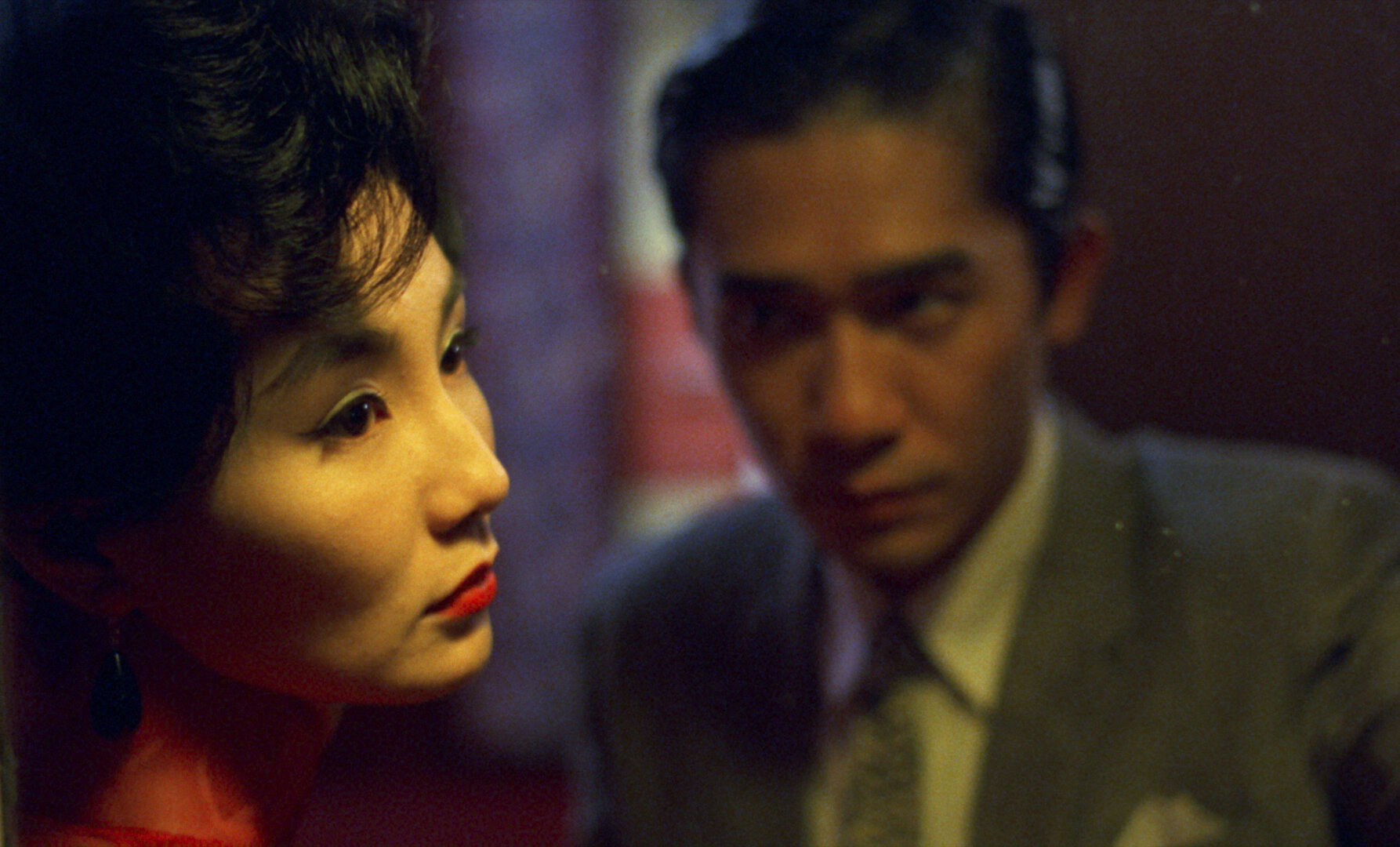I’ve watched In the Mood for Love at least four times since I first discovered it and can always watch it again. It’s a fascinating study of psychology with a backwards romance plot which keeps you wondering until the end.
Watch it and see if you agree with my analysis—and leave your comments!
Rating: PG
In The Mood For Love is a visually beautiful movie about two separate married people, Mrs. Chan and Mr. Chow, who move into apartments that are next door to each other. Their spouses are frequently working late and/or out of the country, so they are both a little lonely. When they discover that their spouses have been cheating with each other, they begin an unusual relationship in which they try to discover how their spouses’ cheating lives started.
Was it a good movie?
I absolutely love this movie. One of the great things about it is how cheating is portrayed: while many movies and TV shows portray it as something sexy and exciting, this portrays the severe pain it causes as well as the confusion. Much of the movie revolves around Mrs. Chan and Mr. Chow trying to understand how their spouses started their affair. They do this by trying to start their own affair, and they soon find out that cheating is not as easy as it seems.


Can you explain some of the symbolism? (WARNING: this portion contains some spoilers!)
“You notice things if you pay attention” is the quote from Mrs. Chan which defines this movie and is the precedent to the whole storyline. The first thing to notice is that much of the movie, especially toward the beginning, is filmed to seem like we movie watchers are spying. Very voyeuristic. Many times it seems we’re looking through a window or peephole or we’re overhearing private conversations. We are hiding from the cheating spouses (remember, we never see either of the main characters’ spouses) just as they are hiding their affair—in plain sight.
Note that we never learn either of the main characters’ first names. We only hear Mrs. Chan and Mr. Chow throughout the whole film. We also hear many times that the couple cannot be seen together too often, even if they’re just getting noodles together. These things and many others all underscore the boundaries of Asian society, further highlighting the irony of the spouses’ cheating. It also keeps a high level of formality, showing how little the two really know about each other.
Just as Mrs. Chan and Mr. Chow are trying to repeat their spouses’ affair, the music, clothes, and food are all repeated throughout the movie as well. This just emphasizes the fact that Mrs. Chan and Mr. Chow are trying to duplicate their spouses instead of creating something new of their own. Of course this kind of relationship can’t succeed and it doesn’t. At least not in the way they wanted it to. Instead, they form a strange, almost obsessive friendship which is focused heavily on becoming something more. When they start writing serials together, they finally (and symbolically) start to develop their own new relationship.
Another interesting symbol is that Mrs. Chan only wears her wedding ring on her right hand while Mr. Chow wears his on his left hand. This shows Mrs. Chan’s lack of commitment to an adulterous relationship in comparison to Mr. Chow who has no problem with it. Mrs. Chan clearly still loves her husband and can’t let go of him, nor can she imagine hearing about his adultery from his lips, as we see when Mrs. Chan practices confronting her husband about it.
The best part of the movie is the end, which is the most symbolic as well as the most debatable. What is the secret Mr. Chow whispers into the hole? And why does he whisper it into ruins instead of into a tree? The most important thing to remember is the scene when Mrs. Chan and Mr. Chow are in the taxi together and she takes his hand. This is the sign that she has officially given in to him. Which means her son is THEIR son.
Mr. Chow whispers the secret that he and Mrs. Chan have a son together into the ruins as a symbol of their relationship being in the past. If he had whispered the secret into a tree, it would mean they were still together—if the tree was alive. But ruins explicitly state that their relationship is dead and in the past like the ruins. As the poem at the end says, “That era is passed—nothing that belongs to it exists anymore”. Their son is the only remnant of their relationship.

